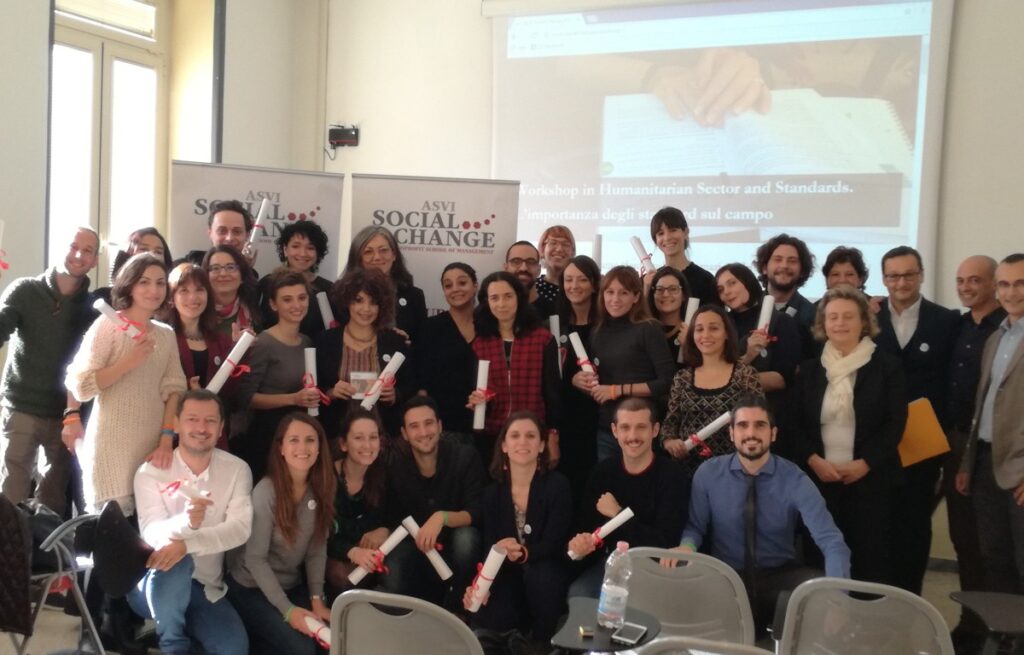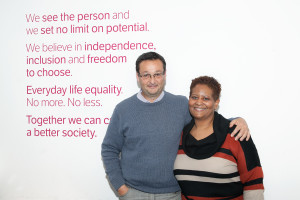Career Development Service

More than 90% of our former students are now employed!
Social Change School has always been working closely with the HRM and managers of the sector.
Our Master programmes are co-projected with the Masters’ Directors and managers of the non profit sector, who are constantly updated by means of surveys about the competences and required professional profiles at international level.
The Career Development is one of the qualifying processes of the Master programmes.
Our career services department offers exceptional support and assist in finding the best match between our students’ skills and competencies and the right organizations. This is made possible by our extensive network of partners.
Our students often testify that the experience is life-changing.
One of the main challenges faced by young individuals when entering the job market is their difficulty in effectively showcasing their abilities during recruitment interviews. On the other hand, those transitioning from the for-profit sector have the advantage of gaining firsthand experience with our unique nonprofit interview process, which differs from what they may be accustomed to. Therefore, it becomes crucial to emphasize key areas of focus and cultivate the ability to unlearn certain principles while remaining open to relearning new fundamental ones. For individuals coming from cultural, social, and nonprofit sectors, this moment serves as an opportunity to reflect on their progress and gain practical suggestions from colleagues.
The School is dedicated to making significant investments in optimizing the launching process, ensuring the best possible start for these professionals.

Social Change School’s services for Career Development:
1.
MASTERS’ ADMISSION AND EVALUATION INTERVIEW
The Master Admission and Evaluation Interview, mandatory to be admitted to the Master, is carried out by managers and HRMs of the sector.
The interview evaluation process is handled by a professional of the nonprofit sector.
The assessment starts from pointing out the strengths and then moving on to areas that need improvement.
In the rapidly evolving professional landscape, it is crucial to establish a clear definition of professional profiles that are not only in high demand today but will also remain relevant and sought-after in the next 5-10 years.
These profiles need to possess the skills and expertise that can be immediately valuable in international markets, including NGOs, Associations, Foundations, Cultural Entities, and Universities.
To achieve this, collaborative efforts are underway between Masters Directors, coordinators, and HRMs within the sector.
Together, we are shaping perspectives, devising effective strategies, and ensuring the preparedness of professionals to meet the evolving demands of the global market.
2.
DEFINITION OF THE
PROFESSIONAL PROFILE
3.
PERSONAL DEVELOPMENT PLAN (PDP)
During the Master, we work together to define an action plan to successfully enter the job market after the end of the Master.
The Career Plan is based on your personal SWOT analysis and on the coaching, and has the “Professional Action Plan” as an output.
Whilst in the majority of the Masters students are just provided with a list of organisations to contact, the Career Development carries out the matching between the Student’s Career Plan, your competences and desires, and the availability of the coherent organisations.
The preparation training period consists in one hour of preparatory interview for the training period with you, followed by an interview with the HRMs of the related organisation.
4.
COACHING
5.
JOB INTERVIEWS
Before the training period, you will be invited to an interview with a colleague of a partner organization, where you will be evaluated on about 30 items focused on: your CV, Linkedin, contact email and presentation, application, speaking and interview management.
At the end of this interview, you will be given a very useful report that will help you gain awareness on key areas to be improved and also guidelines on how to best present yourself in the labour market, which also helps mantain the School’s positive image.
One of the most important moments for the skills transfer, with the Challenge ‘SWOT’, the Field Experience, the Project Work and the Final Pitch.
About 50% of the students that do the training period continue to collaborate with the organization. The training period, from 200 hours to six months, in your own residence country or abroad (even in developing countries), finishes with a crossed report of the student, the organization’s tutor and the coordinator.
6.
FIELD TRAINING PERIOD
7.
ALUMNI COMMUNITY
After the Master, students are invited to join the Social Change Alumni Community, an amazing opportunity to keep in contact, network, ask for and offer help. Inside the community there are ex-students from previous editions, who are now professionals and managers in the organisations. Many useful services, partly provided by the members themselves.
Moreover, after the Master staff, lecturers and colleagues will be available to help in pursuing your professional path in the best way, thanks to their knowledge of the international labour market, its specificities and how to be a part of it (requalifying and/or reintroducing you) in the most professional and effective way.
This option is for those who come from the Third Sector and want to develop their careers or are simply not satisfied with their present situation or encounter emotional and behavioral barriers in achieving their professional or organizational goals. The service is also aimed at those who want to enter the Third Sector and come from the corporate and consulting world.
A complimentary session or 20% discount is available for former SCS students.

